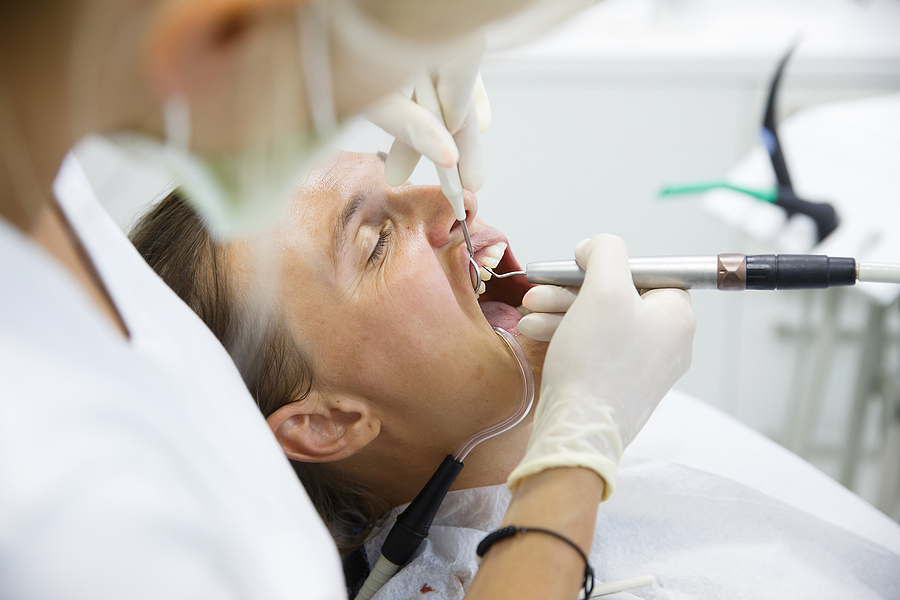Please reach out to our dental practice at 17952 SW Blanton St, Aloha, OR 97078, to have a consultation with our dentists. Call us at (503) 649-5665 or schedule an online consultation, and we'll guide you further.

Beyond Aesthetics: Understanding the Functional Benefits of Dental Crowns in Restorative Dentistry
When it comes to dental health, most people think about aesthetics first. A bright smile and straight teeth are often at the forefront of our minds. However, there’s more to oral care than just looking good. Enter dental crowns—one of the most versatile tools in restorative dentistry. These unassuming caps do far more than enhance your appearance; they play a crucial role in maintaining functionality and overall oral health. Whether you're dealing with decay, injury, or wear and tear, understanding the functional benefits of dental crowns can change how you view your smile's longevity. Let’s dive deeper into what makes these restorations essential for anyone seeking optimal dental health in Aloha, OR!
The Function of Dental Crowns in Restorative Dentistry
Dental crowns play a pivotal role in restorative dentistry. They act as protective caps for damaged or weakened teeth. By covering these vulnerable areas, crowns help maintain structural integrity.
In cases of significant decay, fractures, or after root canal treatment, crowns restore function and aesthetics. They enable patients to bite and chew effectively without discomfort.
Beyond protection, dental crowns improve appearance. Patients regain confidence with a natural-looking smile that blends seamlessly with surrounding teeth.
Crowns also prevent further damage by distributing biting forces evenly across the tooth structure. This minimizes the risk of additional cracks or breaks.
For those seeking longevity in their dental health, choosing a crown can be crucial. It’s not just about looks; it’s about preserving your oral well-being for years to come.
Types of Dental Crowns and Their Uses
Dental crowns come in various materials, each serving distinct purposes.
- Porcelain crowns blend seamlessly with natural teeth, making them ideal for front teeth restoration. Their aesthetic appeal is unmatched.
- Metal crowns provide strength and durability. Often used for molars, they withstand the pressure of chewing without chipping easily.
- Ceramic crowns offer a balance between aesthetics and functionality. They are versatile enough to be used on both anterior and posterior teeth while providing a more natural look than metal options.
- Resin crowns are less common but can be an economical choice for temporary restorations or patients seeking minimal invasiveness.
Each type has its own advantages tailored to specific dental needs, ensuring that patients receive the best option suited to their lifestyle and oral health requirements. Understanding these differences helps you make informed decisions when considering dental work in Aloha, OR. Contact us to learn more.
Benefits of Choosing Dental Crowns for Restorative Purposes
Dental crowns offer numerous advantages for those seeking restorative solutions.
- First and foremost, they provide strength to weakened teeth. If a tooth has suffered decay or trauma, a crown can restore its integrity and function.
- Another benefit is their aesthetic appeal. Modern dental crowns can mimic the look of natural teeth, ensuring that your smile remains beautiful and cohesive.
- Durability is also key; with proper care, crowns can last many years. This longevity makes them a cost-effective option in the long run.
- Additionally, dental crowns play a vital role in maintaining bite alignment. They help distribute chewing forces evenly across your mouth, preventing further damage to surrounding teeth.
- Choosing dental crowns allows you to preserve as much of your original tooth structure as possible while providing essential protection and support where it’s needed most.
The Process of Getting a Dental Crown: From Consultation to Placement
Getting a dental crown begins with a consultation at your dentist’s office. During this visit, the dentist examines your tooth and discusses any concerns you might have.
If a crown is deemed necessary, they’ll take X-rays to assess the tooth's health. This step ensures that underlying issues are addressed before proceeding.
Once everything is clear, the next appointment involves preparing your tooth. The dentist will remove damaged portions, shaping them to fit comfortably under the crown. An impression of your tooth will be made for precise fitting.
While waiting for the custom crown to be created—often just a few days—you may receive a temporary crown to protect your tooth.
When it's time for placement, you'll come back in for final adjustments. The new crown will be carefully positioned and bonded into place, restoring both function and aesthetics effectively.
How to Care for Your Dental Crown
Caring for your dental crown is essential to its longevity.
- Start with a solid oral hygiene routine. Brush at least twice a day and floss daily, just like you would with natural teeth.
- Be mindful of the foods you consume. Hard or sticky items can damage your crown over time. Chewing ice or biting into hard candies may lead to cracks.
- Regular dental check-ups are crucial. Your dentist will assess the condition of your crown and overall oral health during these visits.
- If you notice any discomfort or changes around the crowned tooth, consult your dentist promptly. Early intervention can prevent further complications.
- Consider using an antibacterial mouthwash to help keep your gums healthy. This extra step will support both your crown and surrounding teeth in maintaining their integrity.
Conclusion: The Importance of Considering Functional Benefits in Restorative Dentistry
When it comes to restorative dentistry, dental crowns offer more than just an aesthetic solution. They play a vital role in restoring function and ensuring the longevity of your natural teeth. Understanding their benefits extends beyond looks; it encompasses strength, protection, and overall oral health.
Choosing the right type of crown can enhance your bite and improve speech while preventing further damage to weakened teeth. Whether you opt for porcelain, metal, or resin-based materials, each option serves specific needs based on individual cases.
The process of getting a dental crown isn’t just about fitting a cap; it involves careful planning from consultation through placement. A skilled dentist will guide you through every step, making sure that your new crown blends seamlessly with your smile while providing robust support.
Once you've received your dental crown, proper care is essential for maintaining its functionality. Regular check-ups and good oral hygiene practices will ensure that both the crown and surrounding teeth remain healthy.
Considering these functional benefits can significantly impact how well you maintain not only your smile but also the health of your entire mouth. The right approach to restorative dentistry goes beyond aesthetics—it's about safeguarding what matters most: effective function and enduring health in every bite.
Office Hours
MON - TUE8:00 am - 5:00 pm
WED7:00 am - 4:00 pm
THU8:00 am - 5:00 pm
FRIBy appointments only
SAT - SUNClosed






comments